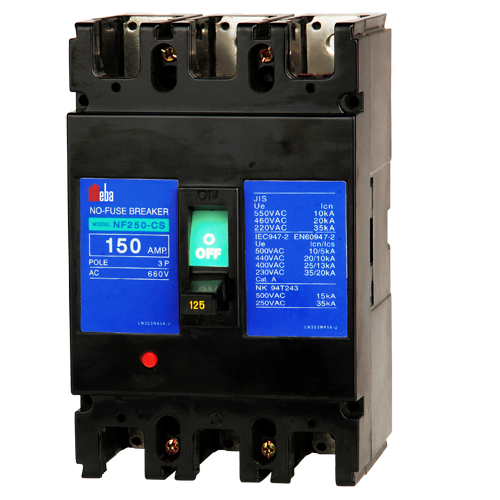A moulded case circuit breaker (mccb circuit breaker) is an electrical safety device that is designed to protect electrical systems and components from damage due to overloading, short-circuiting, and other electrical faults. It is an essential component of electrical distribution systems and is used in residential, commercial, and industrial applications.
MCCBs are made from a moulded plastic case that houses the internal components and provides insulation and protection. The internal components consist of a trip unit, electrical contacts, and a mechanism that opens and closes the contacts. The trip unit is responsible for detecting an electrical fault and triggering the mechanism to open the contacts, thus breaking the circuit and preventing further damage.

One of the key benefits of using an MCCB is its ability to provide reliable and efficient protection against electrical faults. Moulded case circuit breaker is equipped with advanced trip units that can detect a wide range of faults and provide fast and accurate protection. This helps to minimize the risk of electrical fires, equipment damage, and other safety hazards.
Another advantage of MCCBs is their versatility. They are available in a wide range of sizes, ratings, and configurations, making it easy to find the right MCCB for a specific application. Additionally, MCCBs can be used in both AC and DC circuits, and they can be used with a variety of electrical components, such as motors, transformers, and lighting systems.
MCCBs are also easy to install and maintain. They come with clear and concise installation instructions, and most models can be installed and maintained by electrical professionals without the need for specialized training. This makes MCCBs a convenient and cost-effective option for many electrical systems.
In conclusion, moulded case circuit breakers are an essential component of electrical distribution systems. They provide reliable and efficient protection against electrical faults, they are versatile and easy to install, and they come in a range of sizes, ratings, and configurations to suit a wide range of applications. Whether you are looking for protection for your home, business, or industrial facility, a moulded case circuit breaker and square d breaker is an excellent choices for ensuring the safety and protection of your electrical systems.
Follow us on Facebook







